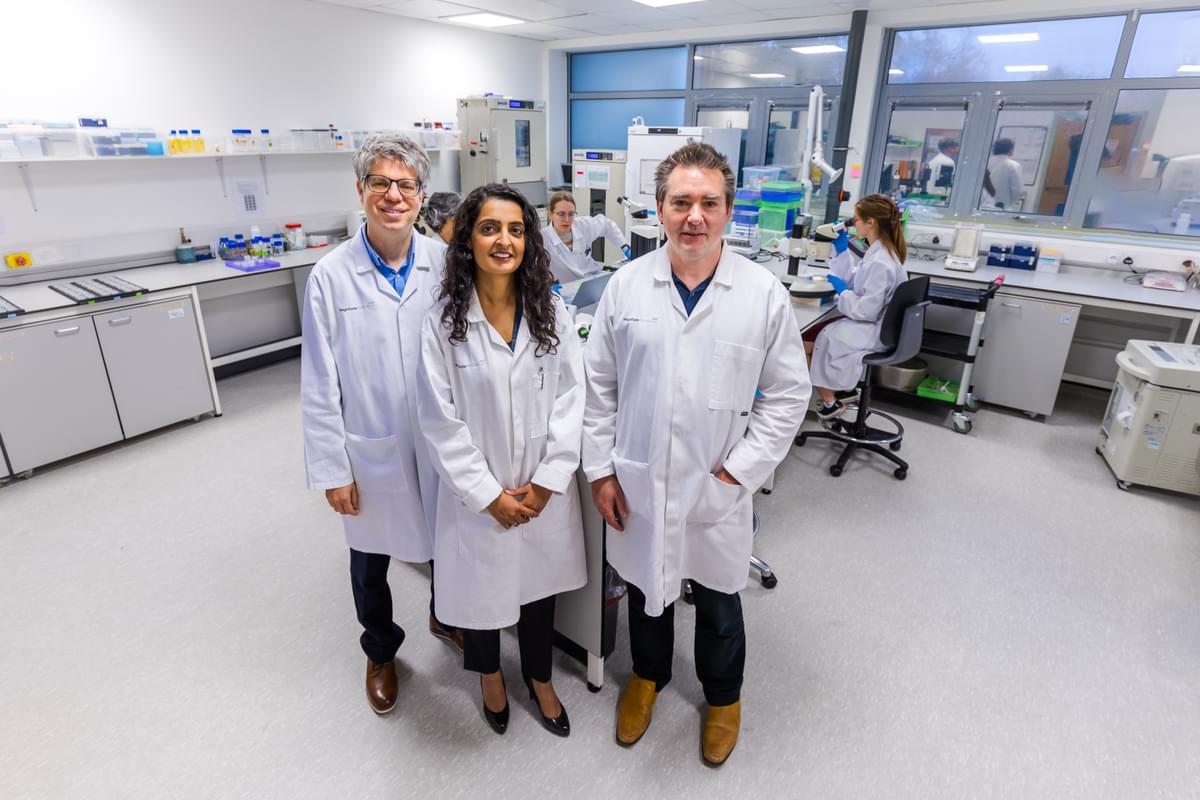NETPark proves ideal base for thriving spin out

The biotech company, which spun out from Durham University and moved to NETPark in 2020, uses tiny nematode worms known as Caenorhabditis elegans – or C. elegans – to carry out pre-clinical drug development and academic research for clients in a range of sectors, including pharmaceuticals, biotechnology, agriculture, and health & nutrition.
As C. elegans nematodes have neurons, skin, gut, muscles, cognitive function, and other tissues that are similar in form, function and genetics to those of humans, Magnitude Biosciences can determine the effects of compounds on aging, longevity, neurodegeneration and reproductive health in just seven days and at a fraction of the cost of in vivo mammalian testing.
Using their proprietary imaging technology – WormGazer TM – Magnitude Biosciences can continuously monitor the effects of compounds on C. elegans over the course of the worms’ very short lifespan and generate a petabyte of rich data each week for multiple research areas.
Dr Fozia Saleem, who joined Magnitude Biosciences as CEO in October 2022, said the WormGazer TM software algorithm is akin to that used by NASA to track objects in space. “WormGazer TM allows us to track the worm’s every movement and understand how their health and behaviour changes over time,” she said.
“As scientists and institutes increasingly look to improve the population’s healthspan – that is, helping a young population age in a way that adds life to their years rather than years to their life – then our aim is to become the go-to clinical research company for screening thousands of compound libraries and novel lifestyle products.”
Magnitude Biosciences, which was founded in 2018 by biosciences expert Dr David Weinkove and physicist Dr Christopher Saunters, has grown its NETPark workforce to 19 employees, working in lab space and offices in both Plexus and Orbit.
In June 2023, it secured a Future Economy Investor Partnerships grant of almost £250,000 from Innovate UK, which was matched by an investment from the North East Innovation Fund, supported by the European Regional Development Fund and managed by Northstar Ventures Limited.
Fozia said the investment will help accelerate research and growth. “We expect to more than double the team in Sedgefield to 45 over the next two to three years, with a larger commercial team allowing us to expand our global footprint,” she said. “We also want to expand our current service offering to include new neurodegenerative and cognition assays and tap into the pharma, health and nutrition sector.”
With an ambitious five-year growth trajectory, Magnitude Biosciences intends to stay on NETPark. Fozia said the science park provides a conducive environment and a collaborative ecosystem that fosters innovation.
“There’s a thriving start-up community and many unique companies who are not in direct competition, and we regularly collaborate,” she said. “I’m excited about NETPark’s Phase 3 expansion, and I’d like Magnitude Biosciences to be part of that growth and, in time, one of the flag bearers with a purpose-built facility.”
Sarah Slaven, Managing Director of Business Durham, the business support service for Durham County Council, said: “By harnessing the resources and support provided by NETPark, with contributions from CPI and Durham University, Magnitude Biosciences is not only thriving but making enduring contributions to the field of biotechnology. Its journey exemplifies the vital role that collaborative research environments, which blend academic knowledge with practical application, play in fostering groundbreaking advancements in biotechnological innovation. The synergy between academia and industry provided by Durham University and CPI strengthens the foundation upon which pioneering biotechnological innovations can flourish."
Find out more about Magnitude Biosciences here or if you are interested in locating your business at NETPark get in touch or call 01740 625250





















